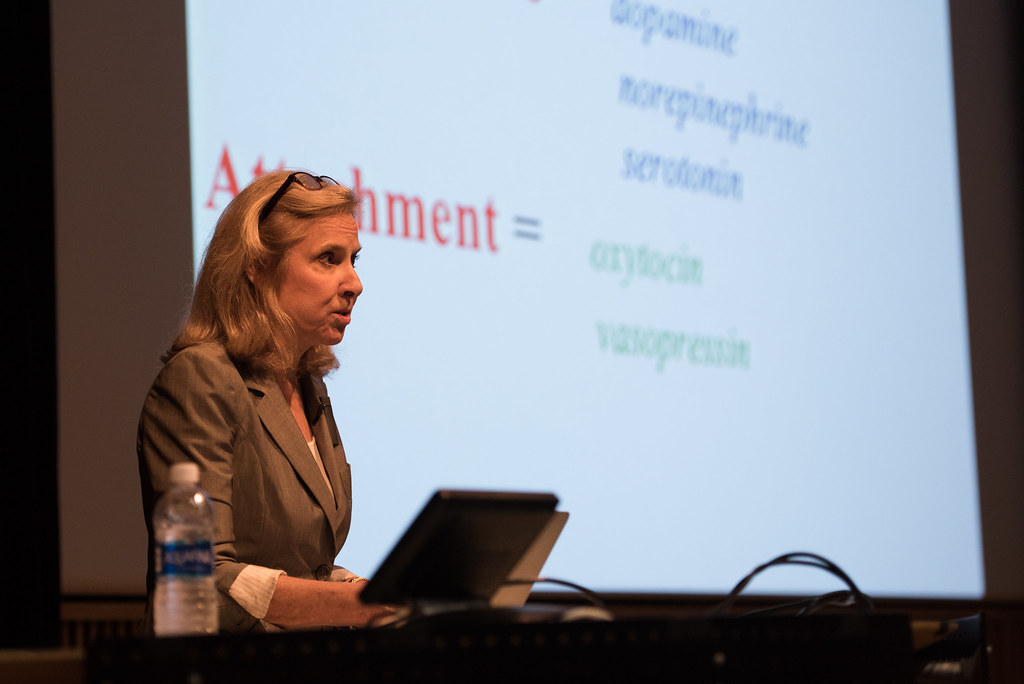Helen Fisher delves into the relationships we choose and why in our digital age

By Allison Scott | Bond LSC
We might not understand what drives us to establish and maintain romantic relationships, but Helen Fisher has made her living trying to figure it out.
The romantic love expert spoke Friday, October 6, in Bond LSC about the neurological reasons behind why humans behave the way they do.
“Romantic love is located right next to thirst and hunger in the brain – it’s a survival system,” Fisher said. “If we survive another million years, we will continue to fall in love.”
Fisher has worked in tandem with the dating site match.com for more than a decade to tailor sites like chemistry.com to look at how relationships actually work in our brains and in practice. Using data from match.com that represents the U.S. population, Fisher detailed how the digital age impacts the dating scene.
“Fundamentally, love isn’t changing,” Fisher said. “Courtship patterns are.”
He research indicates a tendency toward “slow love,” where partners tend to get sexually involved sooner, but are more cautious about marriage and take much longer than previous generations to pair up in that way.
Technology, meeting online and evolving social norms play huge roles in these changes, but she argued that dating sites aren’t really dating sites at all.
“They’re introducing sites,” Fisher said. “The only real algorithm is your brain.”
These changes in how people meet influence marriage, too. She highlighted how cohabitating influences the perception of marriage and its overall impact, as well as the increased tendency for more casual sexual encounters.
“What we’re seeing now is the expanding of the pre-commitment stage of romance,” Fisher said. “Marriage used to be the beginning of a relationship, but now it’s the end.”
While modern couples often postpone marriage, Fisher notes that most people do marry before they reach the age of 50 and she feels positively toward relationship trends and the direction that romantic love is headed.
“I’m extremely optimistic,” Fisher said. “We’re marrying later and moving toward relative marriage relationship stability.”
The 13th annual Life Sciences and Society Symposium, The Science of Love, started Friday, Oct. 6 and Saturday, Oct. 7. It features six experts that research various aspects of love, relationships and connection. The event will conclude on Friday, Oct. 13 with its last speaker, Jim Obergefell, who was the plaintiff in the 2015 Supreme Court case on marriage equality.

